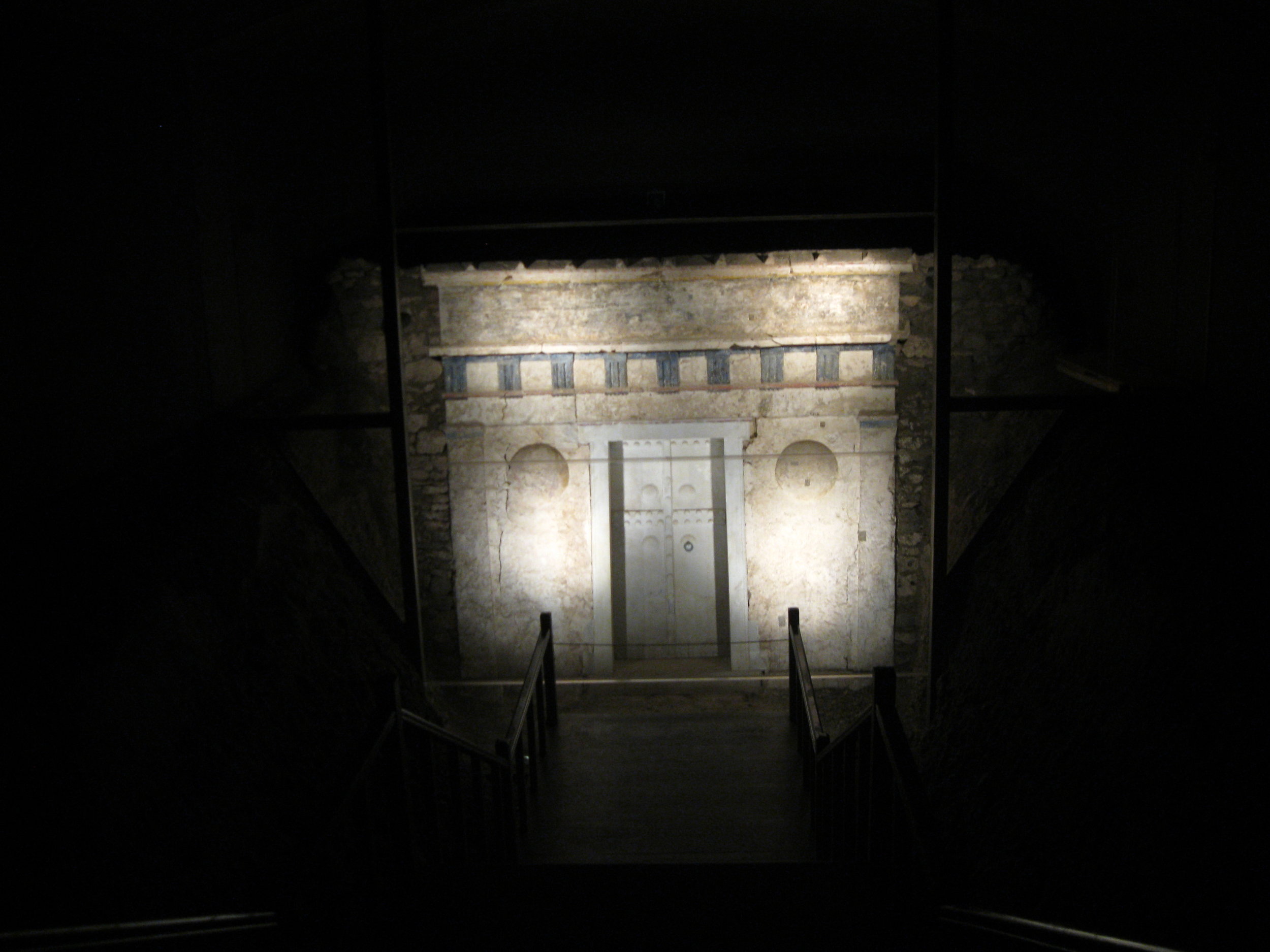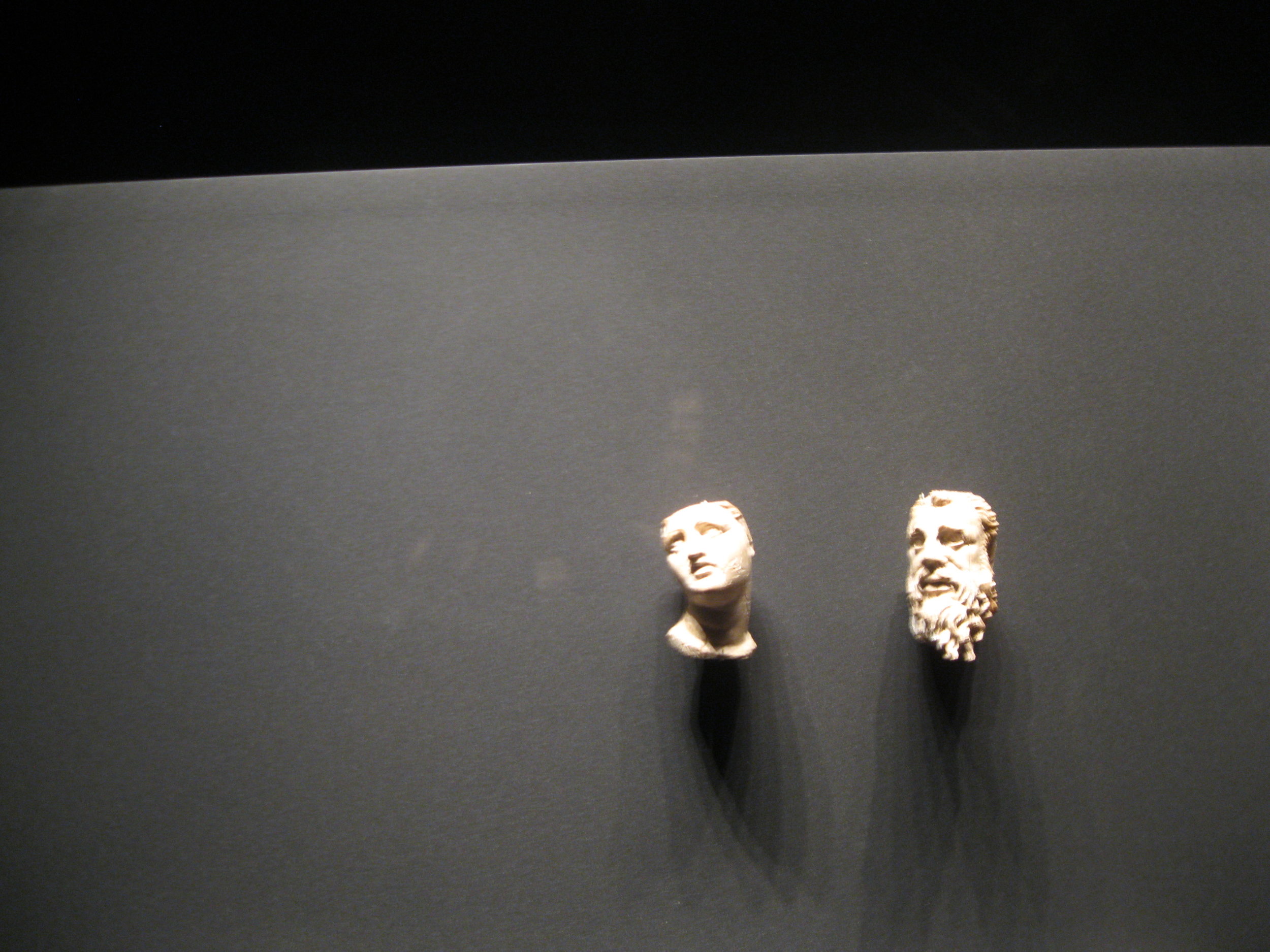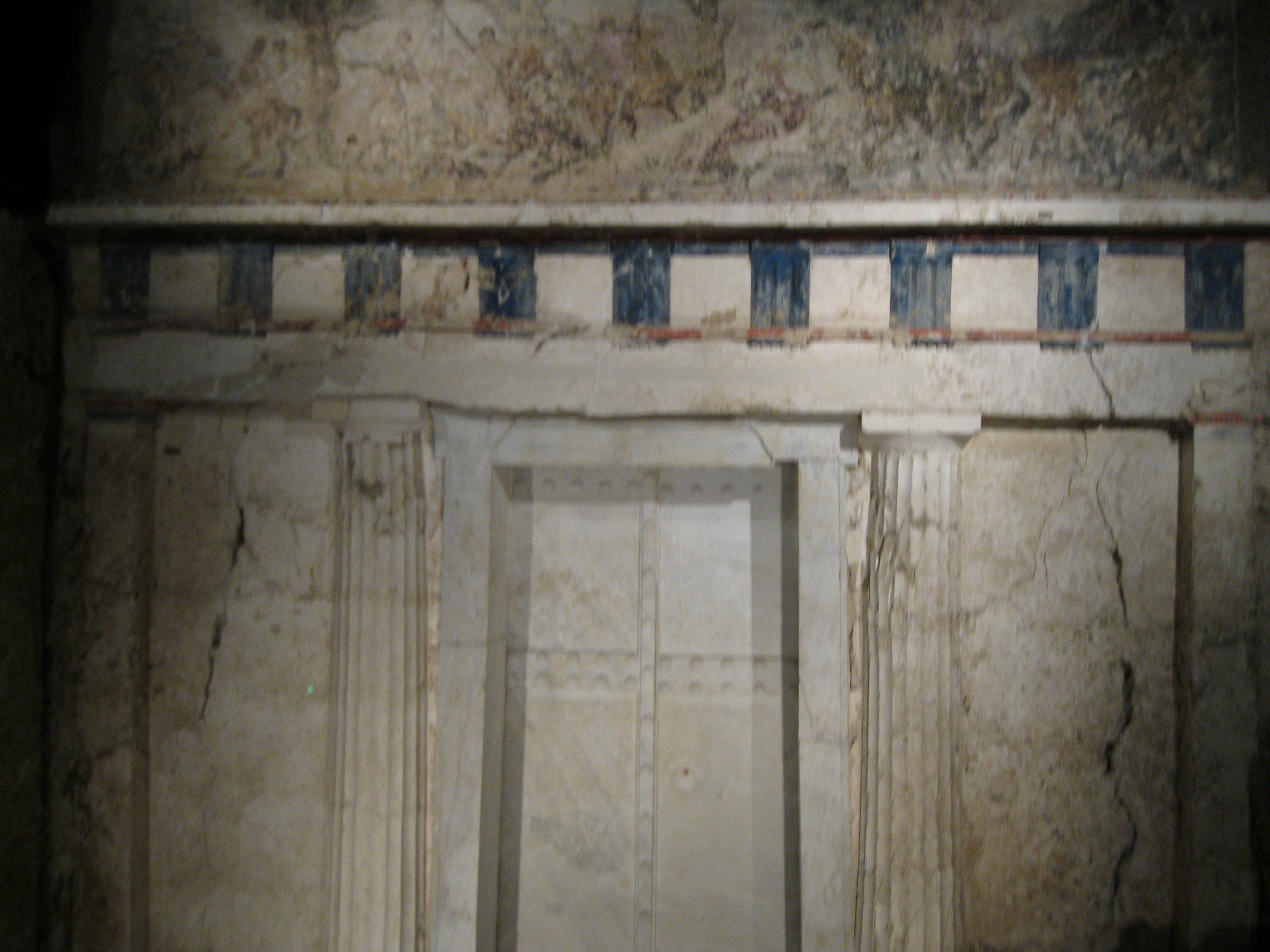With the recent death of Fidel Castro – and the return of “The Hollow Crown” series to PBS, based on Shakespeare’s Henry and Richard histories – my thoughts turn to Vergina, the highlight of My Big Fat Greek Odyssey and a place were leaders were made and unmade.
It was here in the ancient capital of Aigai that Philip II was assassinated on his daughter Cleopatra’s wedding day in a kind of “Godfather” moment. It was here that his son and Cleopatra’s full brother, Alexander, became king. And it was here that the ancient burial mounds of kings of Macedon were unearthed by archaeologist Manolis Andronokis in 1977.
Today, a museum sits on the site, with another coming. We arrived on a rainy morning and were immediately delivered into a world that is overwhelming. This is a dark space that throws the treasures it protects into dramatic relief. Crowns of gold leaves. Poignant marble funeral stele (markers). Weaponry, including a magnificent shield. (More on that in a bit.) And the face from the scarf I bought in the gift shop at Philippi – Persephone, the ravished queen of Hades, lord of the dead, forced to live in the Underworld part of the year for having consumed some pomegranate seeds there. And that’s why we have spring and why we have fall.
You look at the faint impression of her face on a wall and realize it is but a clear mirror, that you are Persephone in the realm of the powerful and the dead.
The power is evident in what was left behind. Even if you didn’t know that this was the resting place of the two kings that bookend Alexander – his father and his teenage son, Alexander IV – you would sense that this is sacred ground. You walk down steps. You look at illuminated facades of mausoleums. And you recognized that beyond those facades lies “the undiscovered country from whose bourn no traveler returns.”
All those trappings of power and wealth: You can’t take ’em with you. Do you think they understood that? You wonder.
Particularly moving here is the tomb of the young Alexander. He was around 14 when he and his mother, the Bactrian princess Roxane, were poisoned by Cassander, son of longtime Macedonian regent Antipater, in a power grab. It was said that the chief accessory of every Macedonian king was the dagger he slept with under his pillow. The Macedonian kings rarely lived long. This one was nipped in the bud. Did he cry or did he die beautifully – with courage and without regret, his father’s son at last? (His mother was pregnant with him when his father died.) In a sense, Alexander the Great was lucky to die, possibly of cerebral malaria, in his own bed in his capital of Babylon in 323 B.C., a month shy of his 33rd birthday.
What about the burial of Alexander the Great’s formidable mother, Olympias? Who knows, our archaeologist guide said not unsympathetically. History doesn’t always note the passing of royal women. Women in general tend to be expendable – appreciated more in death than in life in a kind of Henry Jamesian moment.
They lack power. In “Richard III,” part of “The Hollow Crown,” the villainous Richard’s mother, sister-in-law and cousin – a duchess and two queens – confront him over the murderous treachery that robbed them of husbands and sons. This is the annoyed Richard’s reply:
A flourish, trumpets! strike alarum, drums!
Let not the heavens hear these tell-tale women
Rail on the Lord's enointed: strike, I say!
You hear these words at a time when women are threatened with marginalization again and you weep.
At Vergina, there’s a magnificent shield that depicts Achilles and Penthesilea at the moment of her death. She was a queen of the Amazons whom Achilles fell in love with but only after he kills her in combat. What does this tell you? That a man only knows a woman’s worth perhaps when he’s lost it and her? That is the theme of Henry James’ “The Wings of the Dove.” It doesn’t say much for women but even less for men.
At the end of the Vergina exhibit, we came upon a tribute to site discoverer Andronikus – who died in 1992 as will all the captains and the kings one day, as will we all. No wonder some members of our group wept.
Later that day, we visited the restored church of Ss. Peter and Paul, now a secular site that embraces Roman and medieval influences. It would whet our appetites for our final full day in Greece.
Stay tuned for our last installment of : Ghia-chara, Greece.


